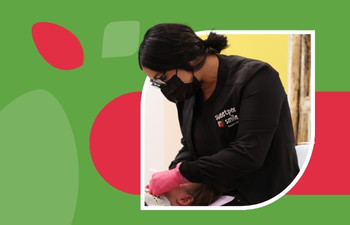The Stress-Grinding Connection: Break the Cycle for a Healthier Smile
Your oral health can be significantly impacted by stress, and one of the most common manifestations of stress is teeth grinding, or bruxism. In this blog post, we'll explore the connection between stress and teeth grinding and provide valuable insights on how to break this harmful cycle. Understanding the importance of preventing teeth grinding is crucial for your oral health and overall well-being.
The Stress-Grinding Connection
Stress affects every aspect of our lives, and our oral health is no exception. Here's how stress and teeth grinding are interconnected:
- Physical Tension: Stress often leads to physical tension, particularly in the jaw area. This tension can manifest as clenching or grinding of the teeth.
- Subconscious Habit: Teeth grinding, or bruxism, often occurs during sleep or subconsciously, making it challenging to control without intervention.
- Impact on Oral Health: Frequent teeth grinding can lead to dental issues such as tooth wear, chipping, sensitivity, and even the development of temporomandibular joint (TMJ) disorders.
Signs of Teeth Grinding
Identifying the signs of teeth grinding is crucial for early intervention. Common indicators include:
1. Headaches
Frequent morning headaches, particularly around the temples or jaw, can be a sign of teeth grinding during sleep.
2. Jaw Pain
Stress-related jaw pain, especially when chewing or talking, may indicate the presence of bruxism.
3. Tooth Sensitivity
Teeth grinding can wear down the tooth enamel, leading to increased tooth sensitivity to hot or cold substances.
4. Chipped or Fractured Teeth
The excessive pressure placed on teeth during grinding can result in chipped or fractured teeth.
5. Tired or Tight Jaw Muscles
Feeling that your jaw muscles are tired or tight, even without physical exertion, can be a sign of bruxism-related muscle strain.
Breaking the Stress-Grinding Cycle
Breaking the cycle of stress-related teeth grinding is crucial for preserving your oral health. Here are some effective strategies to help you manage this issue:
1. Stress Management
- Mindfulness and Relaxation Techniques: Engaging in relaxation practices, such as deep breathing, meditation, and mindfulness, can reduce stress and prevent teeth grinding.
- Exercise: Regular physical activity can help reduce overall stress levels, making it less likely for bruxism to occur.
2. Night Guards
Dentists can provide custom night guards, also known as splints or occlusal appliances, to protect your teeth from the effects of grinding. These are worn during sleep and prevent direct tooth-to-tooth contact.
3. Caffeine and Alcohol Reduction
Limiting caffeine and alcohol consumption, especially in the evening, can help reduce the risk of teeth grinding.
4. Sleep Hygiene
Maintaining good sleep hygiene practices, such as sticking to a regular sleep schedule and creating a relaxing bedtime routine, can promote better sleep quality, reducing the likelihood of bruxism.
5. Consult Your Dentist
If you suspect you're grinding your teeth due to stress, it's essential to consult your dentist. They can assess the extent of the issue, recommend appropriate treatment, and monitor your progress.
The Importance of Preventing Teeth Grinding
Understanding the importance of preventing teeth grinding is essential for your overall well-being. Here's why it matters:
- Preserve Your Teeth: Preventing bruxism helps preserve your natural teeth, avoiding the need for costly restorative dental work.
- Pain Relief: By addressing teeth grinding, you can alleviate the headaches, jaw pain, and discomfort associated with this condition.
- Oral Health: Maintaining healthy teeth and gums contributes to your overall oral health and quality of life.
- Quality of Sleep: Breaking the cycle of teeth grinding can improve your sleep quality, ensuring you wake up feeling refreshed.
A Sobering Statistic:
According to the American Sleep Association, approximately 10% of adults and 15% of children grind their teeth, highlighting the prevalence of this issue.
Book Your Consultation Today!
If you suspect you're grinding your teeth due to stress or have experienced any of the signs mentioned, it's time to take action. At Sweetpea Smiles Pediatric Dentistry in Sugar Land, TX, our experienced team is here to help. We provide comprehensive dental care and offer solutions to address teeth grinding and its impact on your oral health.
Break the cycle of stress-related teeth grinding and protect your oral health. Book your consultation with us today.
Don't let stress affect your oral health. Take the necessary steps to manage bruxism and preserve your beautiful smile.



